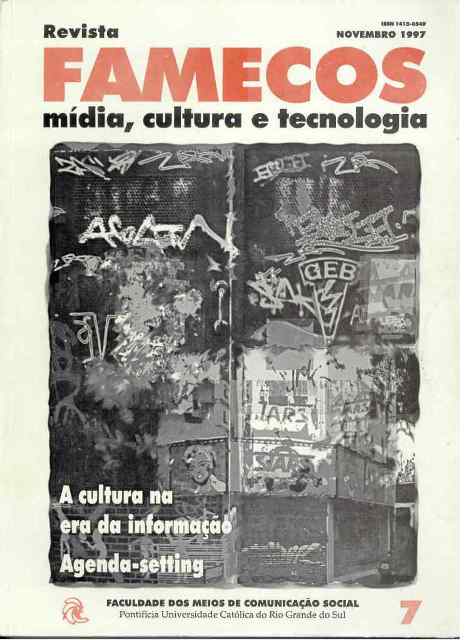Thus Zaratustra would have spoken
DOI:
https://doi.org/10.15448/1980-3729.1997.7.3000Keywords:
Communication, philosophy, NietzscheAbstract
Above man and his time, the essence of the thinking of the German philosopher Friedrich W. Nietzsche (1844-1900) resurfaces in the context of contemporary culture as a reference to the understanding of the current spirit of our time.
Downloads
References
NIETZSCHE, Friedrich. Así Habló Zaratustra: un libro para
todos y para nadie, Madrid, A.L. Mateos, 1993.
__________. Aurora, Madrid, A.L. Mateos, 1992.
__________. La Voluntad de Poderío, Madrid, Edaf, 1981.
__________. El Eterno Retorno; Así Habló Zaratustra; Mas alla del Bien y del Mal; Obras Completas, vol III, Buenos Aires, Aguilar, 1965.
__________. Humano, Demasiado Humano: un libro para espiritus libres, Madrid, A.L. Mateos, 1993.
__________. La Genealogia de la Moral, Madrid, A.L. Mateos, 1993.
SALOMÉ, Lou-Andreas. Nietzsche em suas obras, São Paulo, Ed. Braziliense, 1992.
Downloads
Published
How to Cite
Issue
Section
License
Copyright
The submission of originals to Revista Famecos implies the transfer by the authors of the right for publication. Authors retain copyright and grant the journal right of first publication. If the authors wish to include the same data into another publication, they must cite Revista Famecos as the site of original publication.
Creative Commons License
Except where otherwise specified, material published in this journal is licensed under a Creative Commons Attribution 4.0 International license, which allows unrestricted use, distribution and reproduction in any medium, provided the original publication is correctly cited.






